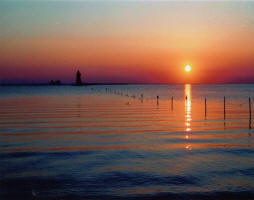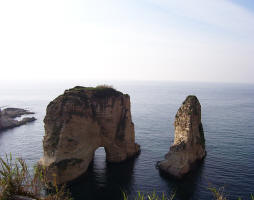 Call for new indicators of sustainable development
Call for new indicators of sustainable development
The world must develop different indicators on sustainable development that are not biased against developing countries, a major conference has heard.
Bharrat Jagdeo, former president of Guyana, said current assessments and rankings use indicators such as access to potable water and sanitation, or malaria levels, which automatically rank developed countries higher.
He was speaking at the 12th Delhi Sustainable Development Summit in India last week (2–4 February), organised by The Energy Resources Institute (TERI).
The conference was attended by UN officials, former and current heads of state, ministers, government officials and representatives from the private sector, and comes in the run-up to the major UN Conference on Sustainable Development (Rio+20) this June.
Last year, at regional workshops organised in preparation for the Rio+20 summit, scientific communities from Asia and the Pacific, and Latin America and the Caribbean suggested a new development index should take into account environmental, social and economic indicators.
These workshops' synthesis report, published by the International Council for Science and UNESCO (UN Educational, Scientific and Cultural Organization) last month (27 January), called on Rio+20 to construct an "appropriate sustainable development index that will become the true measure of development" as "a matter of high priority".
Meanwhile, the UN Secretary-General's High-level Panel on Global Sustainability also called for a new global sustainable development outlookthat "would assess the state of key economic, social and environmental indicators and their interlinkages, making use of cutting-edge knowledge across all relevant sectors, in close cooperation with the global scientific community", in their report, published last month (30 January).
And the draft Rio+20 outcome document also supports creating a set of indicators to measure progress in sustainable development.
Now, politicians and ministers attending last week's New Delhi conference have started to map out how new indicators might work.
Ashok Khosla, founder and chairman of Development Alternatives, a New Delhi-based non-governmental organisation, told SciDev.Net that new indicators should be based on scientific evidence and should consider both global and local interests.
They should also include social objectives, ecosystems health and conservation issues, as well as peoples' well-being, he said.
"What you cannot measure, you cannot manage," he added.
Speakers also called for better-harmonised development indicators across countries. For example, key indicators, such as biodiversity loss, may be measured differently in different countries, meaning results are not comparable internationally, said Timothy Gregorie, professor of forest management at Yale University, United States.
--
Link to synthesis report from the ICSU-UNESCO Rio+20 Regional Science and Technology workshops [515kB]
Link to full report by the UN Secretary-General's High-level Panel on Global Sustainability [922kB]
Link to draft Rio+20 outcome document [89kB]
| Contact information | n/a |
|---|---|
| News type | Inbrief |
| File link |
http://www.scidev.net/en/science-and-innovation-policy/science-at-rio-20/news/call-for-new-indicators-of-sustainable-development.html |
| Source of information | SciDev.Net |
| Keyword(s) | indicators of sustainable development |
| Subject(s) | AGRICULTURE , ANALYSIS AND TESTS , DRINKING WATER , DRINKING WATER AND SANITATION : COMMON PROCESSES OF PURIFICATION AND TREATMENT , ENERGY , FINANCE-ECONOMY , HEALTH - HYGIENE - PATHOGENIC MICROORGANISM , HYDRAULICS - HYDROLOGY , INDUSTRY , INFORMATION - COMPUTER SCIENCES , MEASUREMENTS AND INSTRUMENTATION , METHTODOLOGY - STATISTICS - DECISION AID , NATURAL MEDIUM , POLICY-WATER POLICY AND WATER MANAGEMENT , PREVENTION AND NUISANCES POLLUTION , RISKS AND CLIMATOLOGY , TOOL TERMS , TOURISM - SPORT - HOBBIES , WATER DEMAND |
| Relation | http://www.icsu.org/rio20/regional-workshops/regional-s-t-workshops-report |
| Geographical coverage | n/a |
| News date | 28/02/2012 |
| Working language(s) | ENGLISH |
 you are not logged in
you are not logged in





